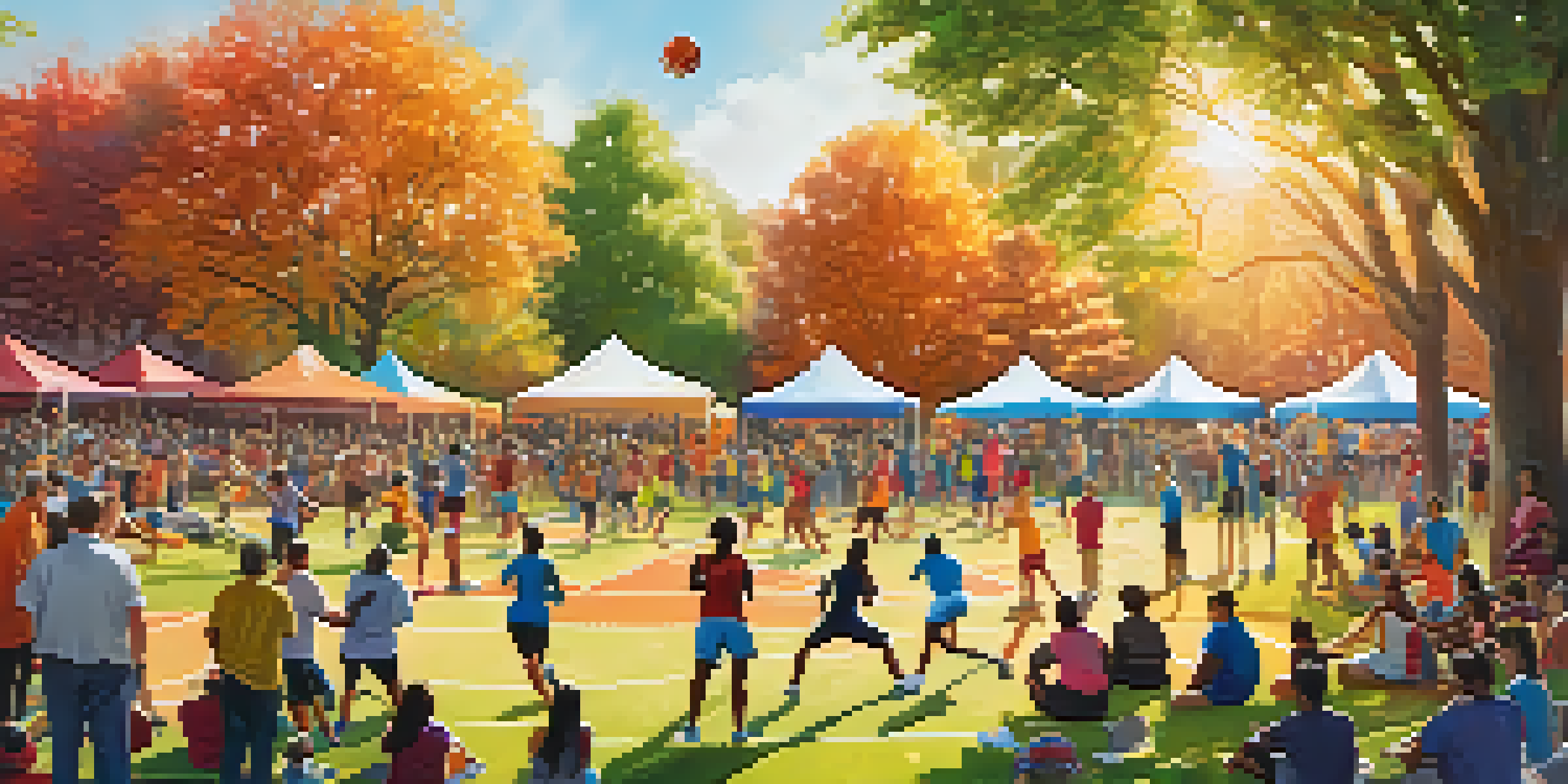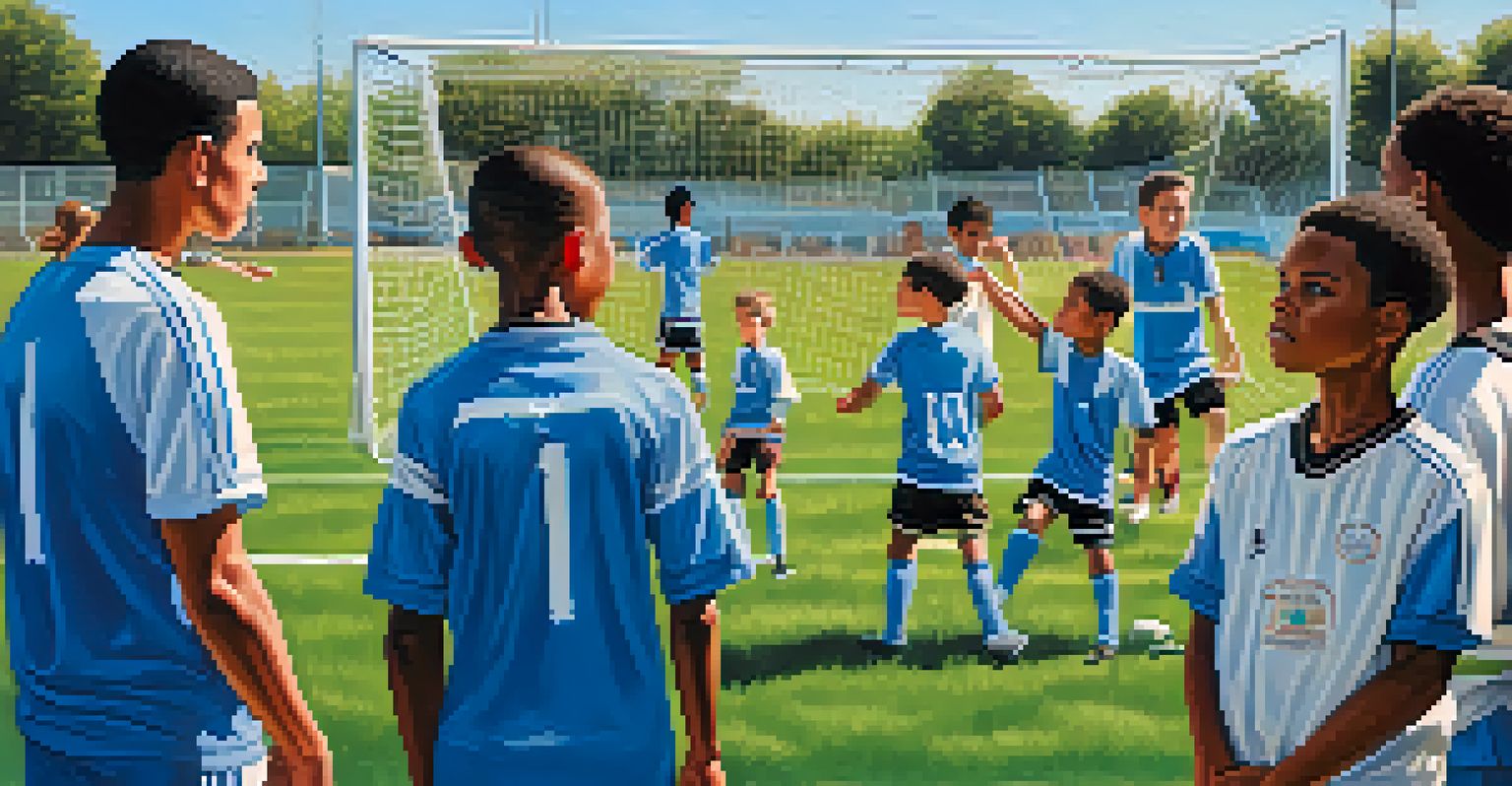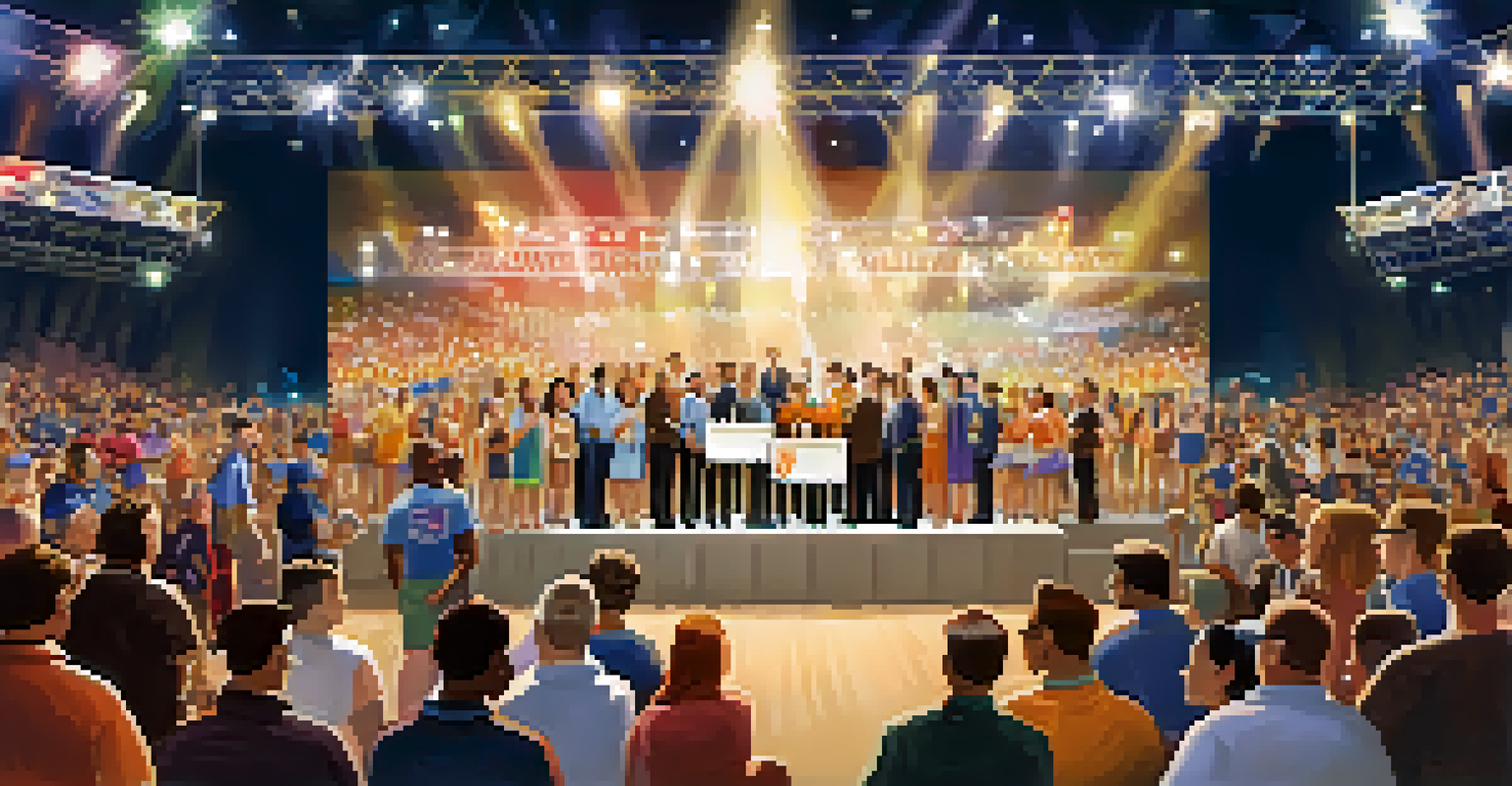Creating Inclusive Local Sports Leagues for All Ages

Understanding the Importance of Inclusivity in Sports
Inclusivity in sports goes beyond just allowing everyone to play; it fosters a sense of belonging and community. By welcoming participants of all ages, backgrounds, and abilities, local sports leagues can strengthen community ties and promote social interaction. This creates an environment where everyone feels valued and empowered to contribute, making sports a unifying force in society.
Sports do not build character. They reveal it.
Consider how a neighborhood basketball league that includes players from diverse age groups encourages mentorship and teamwork. Younger players learn from experienced ones, while older participants stay active and engaged. This age diversity enriches the experience for everyone and helps break down generational barriers.
Ultimately, creating inclusive local sports leagues not only benefits individuals but also enhances community spirit. A sense of belonging can lead to lifelong friendships, increased participation, and a healthier lifestyle for all involved.
Identifying Barriers to Participation
To create truly inclusive sports leagues, we must first identify the barriers that prevent participation. These can include financial constraints, lack of access to facilities, or even cultural perceptions about certain sports. Understanding these obstacles is crucial to developing effective solutions that encourage broader involvement.

For example, some families may struggle with the costs associated with registration fees, uniforms, or transportation to games. Addressing these issues through scholarships or community fundraisers can help ease the financial burden and enable more individuals to participate.
Inclusivity Strengthens Communities
Creating inclusive sports leagues fosters a sense of belonging and promotes social interaction among participants of all backgrounds.
Additionally, it’s essential to consider physical accessibility for individuals with disabilities. Ensuring that facilities are equipped to accommodate everyone will foster a welcoming environment where all can thrive.
Engaging the Community in League Development
Creating inclusive sports leagues requires active participation from the community. Engaging local residents, schools, and organizations can provide valuable insights and resources. Hosting community meetings or surveys can help gather feedback and ideas on how to make leagues more inclusive.
Inclusivity is not a matter of political correctness. It is the key to success in every community.
For instance, a local soccer league might partner with schools to offer clinics that introduce the sport to younger children and their families. This not only builds interest but also creates a pipeline of new players who feel connected to the league from an early age.
By fostering open communication and collaboration, leagues can cultivate a sense of ownership among community members, leading to greater support and participation.
Diverse Programming for Varied Interests
One way to ensure inclusivity is by offering diverse programming that caters to various interests and skill levels. This might include recreational leagues for casual players, competitive teams for those seeking a challenge, or adaptive sports for individuals with disabilities. By providing options, leagues can attract a wider audience.
Imagine a local swim team that offers classes for both competitive swimmers and those simply looking to improve their skills. Such dual programming allows individuals to choose their level of involvement while promoting a welcoming atmosphere.
Identifying and Overcoming Barriers
Addressing barriers such as financial constraints and accessibility issues is crucial for encouraging broader participation in sports.
Moreover, incorporating various sports or activities, like yoga, dance, or martial arts, can appeal to different age groups and fitness levels. This inclusive approach ensures that everyone can find something they enjoy.
Recruiting and Training Diverse Coaches
The success of inclusive sports leagues often hinges on the quality of their coaches. Recruiting and training a diverse group of coaches not only brings various perspectives but also sets a positive example for players. Coaches who reflect the community’s diversity can better connect with participants and foster an inclusive environment.
Consider how a local baseball league could benefit from having coaches of different backgrounds and experiences. This diversity can enhance coaching styles, making practices more engaging and relatable for players of all ages.
Training programs should emphasize inclusivity, ensuring that coaches understand how to support all participants, regardless of their skill level or background. A well-prepared coaching staff is essential for nurturing a positive and inclusive league culture.
Creating Safe and Supportive Environments
Safety and support are paramount in fostering inclusivity in local sports leagues. Establishing clear policies against discrimination, harassment, and bullying creates a protective atmosphere for all participants. League organizers should actively promote these values and ensure everyone understands the importance of respect and support.
For instance, implementing a buddy system where experienced players mentor newcomers can build a sense of safety and community. This approach not only helps new participants feel more comfortable but also encourages teamwork and camaraderie.
Diverse Programming Attracts All
Offering varied sports programming ensures that individuals of different ages and skill levels can find activities that resonate with them.
Regular training sessions for league volunteers and coaches on how to create safe environments can further reinforce these principles. When participants feel secure and supported, they are more likely to engage fully and enjoy their experience.
Celebrating Diversity and Success in Leagues
Celebrating the diversity and achievements within local sports leagues can inspire continued participation and foster community pride. This can be done through award ceremonies, community events, or social media recognition. Highlighting stories of diverse participants not only validates their experiences but also encourages others to join.
For example, a league might host an annual festival showcasing the different sports offered and celebrating players from all backgrounds. Such events can attract new members and reinforce the idea that everyone has a place in local sports.

By acknowledging and celebrating individual and team successes, leagues create an uplifting environment that motivates participants to strive for their best while feeling valued.